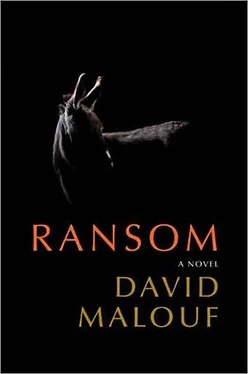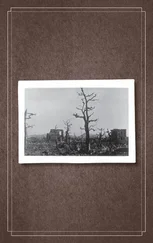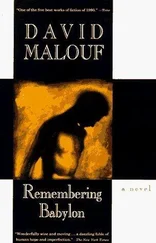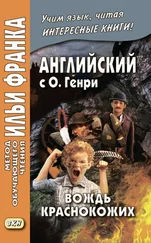‘Sometimes late at night when I am sliding towards sleep, and in broad daylight too if I have been standing too long at some official ceremony, and the voice of my herald, Idaeus, has become a far-off drone in my ears like the buzzing of flies drunk on blood, it will be all around me. Foul, close, so thick it’s a wonder that others don’t hold their noses and turn away. And I am back there in the very midst of it, looking down that white-dust road into another life. And it means nothing, that other story. In this one the miraculous turnabout has never happened. I am just one more slave-thing like the rest, one among many. I look at my blackened hands and feet, the rags I am dressed in, and know that I have no more weight in the world than the droppings of the lowest beggar or street-sweeper. All I was promised by the poets of my father’s court when they named my ancestors and sang of their high dealings with the gods, all the gods themselves promised, has been struck out, cancelled, and the little lord of all the pleasures I had taken myself to be, Podarces, son of Laomedon, is as dead as if he had choked on a sop of wine-soaked poppy-cake, or one of those sweat-stained butchers had cut his throat up there along with the rest of his brothers, and he had sat down astonished on the palace floor and watched his rare blood spread out across the pavement and drain away into a sluice.
‘I take comfort from the others. Some of them are whimpering, but for the most part they are resigned. They’ve taken resignation in with their mother’s milk. Misery is all they know, it’s what they were born to. I resign myself. I let my old name go, since to speak it or hear it spoken would be death. I let it go, and with it that odd, old-fashioned little fellow it was tied to, who has choked on his bit of wine-soaked poppy-cake and been reborn as No One, and is waiting now, along with the rest, to be dragged out of the crowd and claimed and heard no more of.
‘And then it happens. A breath, not my own, betrays me. “Podarces,” it whispers, and I see peering in at me the black eyes of my sister, Hesione. When I shake my head and shrink back she speaks again. Louder this time.
‘“Podarces!”
‘Is she mad? Doesn’t she realise?
‘Because he is at her side, hulking and dark. Bareheaded but still fully armed. His leather cuirass stained with sweat, his body pouring forth the stink of his terrible exertions. Heracles, our father’s enemy. The others know him too, and draw back. I am left alone under his gaze.
‘It will happen now, I tell myself. Doesn’t she realise? I close my eyes, hold my breath.
‘But the hero laughs. He is in a mood, it seems, to be amused.
‘“ That thing?” he says. His voice is full of scorn. “You choose that? In the gods’ name, why?”
‘“Because he is my brother.”
‘He frowns. Leans down till his shaggy head is level with my own. The huge paw comes down, an iron clamp on my skull, and I feel his hot breath in my face. Smell the rank meatiness of him. Glance up after a moment under the brute weight of his palm.
‘He is no longer glaring. But his smile! How easy it would be for him. Just a little more pressure of the fingertips, a turn of the hairy wrist, and my neck would snap.
‘I meet his eyes and see there a lightning flicker that is the urge to do it. Because he can.
‘“This is your brother?” he says, in a wondering tone. The small pig-eyes disappear in the muscled cheeks. “You’re sure? It’s really him?”
‘“Of course it is,” she tells him. “Wouldn’t I know my own brother? Of course it’s you, isn’t it, Podarces, my dear?”
‘I open my mouth but no sound comes.
‘“And you wouldn’t try, would you,” he says, my skull still locked in his grip, “to trick me? With a substitute?”
‘He leans closer. “Well,” he says playfully, “my little substitute, aren’t you the lucky one?”
‘He relaxes his hold and stretches upright. He looks, in his huge bulk, rather foolish. He is trying to please her by making a game of all this. And why not? She, too, is just a child. She is to go — another prize of war — as a gift to his friend Telamon, and he has told her she may have, as a gift of her own, whatever she chooses, anything her bright eyes light upon — expecting her to choose some gaudy trinket, a bauble to hang at her wrist or an ivory footstool from Punt, a bronze mirror to catch her smile in. But she is Laomedon’s daughter. She has led him down to the horde of filthy, tear-stained urchins and searched among them and chosen me.
‘“Well,” he says, his slow mind working, “I promised you your choice. If this is what you choose, take him, take the brat, and let him be whatever you say he is, your brother or some nameless substitute, what does it matter? But since he is to be my fine gift to you, and to show that I am a man of my word, let his name, from now on, be Priam, the price paid, the gift given to buy your brother back from the dead. So that each time he hears himself named, this is what he will recall. That till I allowed you to choose him out of this filthy rabble, he was a slave like any other, a nameless thing, with no other life before him but the dirt and sweat of the slave’s life. And in the secrecy of his own heart, that , for all the high titles the gods may heap upon him, is the life he will go on living day after day till his last breath.”
‘He narrows his eyes, sets his great meaty paw on my skull again, but this time with a deceptive gentleness, as if he were conferring a blessing. “Priam, the price paid. The substitute and pretender. A great one of the earth. But only by default. Because it pleases your fancy, little princess, to choose him, and mine to allow it.”
‘It was all mockery, you see. Young as I was, I knew mockery when I heard it, sneering contempt. That sort of low, back-handed nobility was all a Heracles was capable of. After all, he was a pretender himself. Only half a god, and that too by allowance and default.
‘But his allowance was enough. Little shadow that I was of a dead prince, I caught the second breath they offered me and was delivered, called back under a new name. The gods had relented. Set back on my father’s throne, I inherited his lands, his allies, married you, my dear — but a happy ending? Oh, I know what the story says. But after all those hours of being just one among so many — the ones for whom no miraculous turn would come, who would go on waiting in the dust and heat, and be carried off at last to a lifetime of slavery — I did not feel I’d been delivered. I had experienced something I could not un-experience and would never forget. What it means for your breath to be in another’s mouth, to be one of those who have no story that will ever be told. After playing with me a little, and showing me what it was in their power to do, the gods had relented. They would allow me, in their high-handed, half-interested way, to cough up my bit of wine-soaked poppy-cake. But I had gone too far, you see, on the downward path to get back. I had the smell on me, here in my head, but also — I can smell it now — in my armpits, on my hands …,’ and his fine nose wrinkles with distaste.
‘Priam, please,’ Hecuba puts her fingertips to his lips. ‘These things are so ugly.’
‘But they happen,’ he insists. ‘And not just to other people. What I have been telling you happened to me . I stood in the midst of these things.’
He sees her shudder.
She is bewildered. He has also frightened her. She resents having been brought so close to what she does not want to know or think about. That moment of standing beside him, even in imagination, in a crowd of dirty, wailing children — the spawn, as he himself put it, of pedlars, whores, scullery maids — he should not have asked it of her. Dragging her in where she too would have that stink in her nostrils.
Читать дальше












